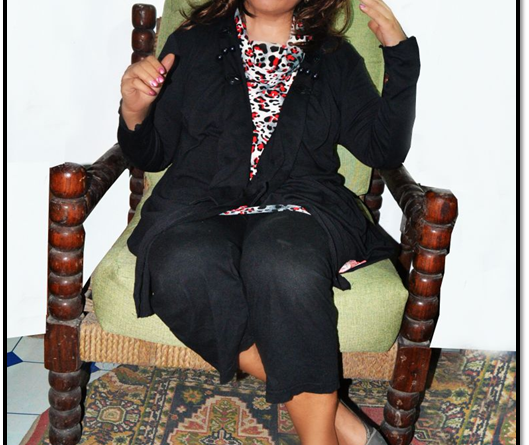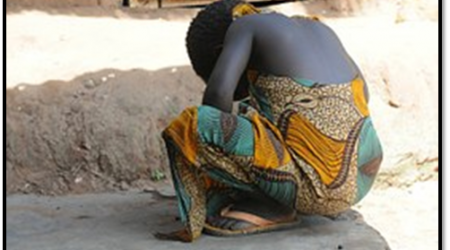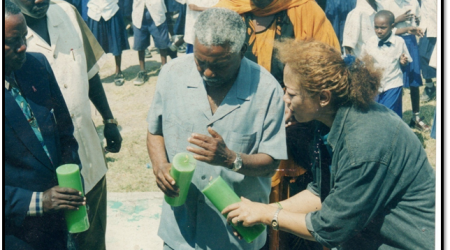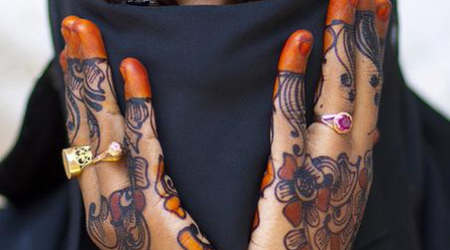SEXUAL HARASSMENT -The Silent Crime
In definition, sexual harassment means “unwanted sexual attention”. It can take the form of direct verbal proposition; it can be in the form of direct physical contact like groping, touching of hair, bottom or breasts. Or it can take form through crude language about women’s anatomy, backbiting with intent to defame, showing of women’s anatomy in graphic, pornographic pictures to a woman against her will, or hanging pictures/posters of nude women being subjected to sexual acts which are sadist in content, in public places.
In the streets, it takes the form of ribald comments when a woman passes, sometimes direct touching of women’s bodies in public transport.
At places of work, it includes threats to the target woman that she would be sacked if she does not dispense sexual favors. There is constant bullying and verbal abuse if she refuses to comply, degrading the woman in public to humiliate her especially if the woman is strong and assertive. Spreading malicious rumors to destabilize her and getting other workers to gang up against the woman victim.
If the perpetrator of the sexual harassment is the chief of the organization, he would invariably use his position of authority to undermine the woman’s work, her integrity, her dignity and most likely sack her.
If the woman victim is strong enough to make a protest, he would use influence, power, monetary favors and the ‘old boys’ network’ to degrade her. In other words, it would be her word against his.
Sexual harassment is called the silent crime it may be perpetrated in public for example in the office, the woman’s colleagues would know it is taking place, but few would dare offer support to the woman out of fear they may lose their jobs.
Sexual harassment is the cause of nearly 60 per cent of loss of employment to women in government departments and in the private sector.
Sexual harassment is the most serious problem for women. It curtails women’s career advancement- some resign, others get sacked. Those women who remain because they have no option except to agree to the ‘terms’ from the male boss, often suffer from acute depression, their productivity is reduced and they suffer from loss of self-esteem.
In a survey conducted by the writer of this report, out of 300 women interviewed ranging in age between 18-60 from different income, social and racial groups, and 90 per cent said they have experienced sexual harassment.
Seventy five per cent of the women are employed in the government and in the private sector. Ten per cent are in institutions of higher learning, while the rest are self-employed, engaged in trade.
To some extent, society has played a role in undermining women’s image of themselves, as well as society’s image of women.

That goes for language too. All the abusive terms are female oriented in which parts of women’s anatomy are mentioned explicitly and in a derogatory way.
Sexual harassment against women is the oldest form of ‘power play’ with the woman being reduced to the role of ‘victim’, with the man, the perpetrator, in the role of intimidator.
In its most basic form, when it is direct assault, sexual harassment brings into focus the helplessness of women because culturally, they have been brought up not fight back against abuse in any form, by the fact that few hold positions of authority at work, and by the fact that women’s assertive and independent spirit is suppressed by society.
What the woman victim feels is anger and impotent rage. Very few women have the courage to fight back against the vile practice.
Sexual harassment is one of the most common, one of the most practiced crimes against women in Tanzania yet few women and fewer men realize it is an aberration and that is a criminal offence.
.From the survey this writer made, women victims of sexual harassment are not aware that the use of power and authority by male bosses to coerce sex is a crime, not until it becomes indecent assault, that is when the women realize the man has crossed the parameters of good behavior, and even then, less than one per cent report the cases to higher authorities or to law enforcers.
WHAT THE LAW SAYS ABOUT SEXUAL HARASSMENT

In 1998, the Sexual Offences Special Provisions Act (SOSPA 1998) was passed by Parliament. It is a milestone in the advocacy initiative by the Civil Societies Movement. It is the first legislation in Tanzania which bore fruit out of a coalition of CSOs, the government, Members of Parliament development partner and the media.
It is a commendable Act in a number of respects and it is much wider in scope and application. It also offers victims of sexual offences greater legal protection. The Act is more victim friendly, woman friendly- except sex workers- and unlike previous legislation on sex related crimes it is more compassionate towards victims.
For example, prior to SOSPA, only the State could impose Fines against offenders. SOSPA changed that and law courts became empowered to impose Fines against an offender and Compensation to victims of sexual violence as ‘retribution for the harm done to them’ (S.131 (1) (2).
Compensation awards in sex crime cases are revolutionary in that they recognize the real victim in the crime. Moreover, compensation awards are dispensed in conjunction with other punishments including imprisonment, fine and/or corporal punishment.
SOSPA 1998 has empowered the High Court to impose higher penalties than those allotted by Lower Courts on revision which are binding unless there is an appeal.
SOSPA protects the integrity and anonymity of children and women victims of sex crimes in court records and in judicial proceedings by requiring child victims of sexual abuse and women victims of sexual offences to testify in camera. SOSPA also has provision of rape of men by man/men.
LAXITY IN SENTENCING UNDER SOSPA
Despite increased punishment in a number of Provisions, some of the offences have been allotted low penalties in comparison to the gravity of the crime.
TIME LIMITATION
Time limitation in reporting incidents of sexual harassment S. 138 (d) in SOSPA requires a victim to institute prosecution within 60 days, the lead consideration being the desire to ‘protect’ accused persons from possible abuse of the Provision by ‘malicious women’.
However, such a Provision is in conflict with legal principles. In Criminal Law, the Statute of Limitation does not run out. How can such a Provision be justified in the case of sexual harassment? Can such a Rule be extended to other crimes such as armed robbery or murder where the State is not required to prosecute the case in 60 days?
It should be noted here that sex offences like sexual harassment are not only offensive to the dignity and honor of a woman they are also done by perpetrators from a position of power and authority. They are men which invariably gives them an edge over their women victims in a patriarchal society like Tanzania. They are often in positions of higher authority than their women victims, with the power to sack women from their places of employment if they do not comply.
In contrast, the woman victim of sexual harassment would not only live with the fear of losing her job, possibly her only source of income, she would also be afraid of societal disapproval. Women fear being ostracized. They fear stigma. They fear being isolated from the body politic. And a woman who dares to speak up against sexual harassment becomes not only a professional pariah, but also a social outcast.
Lack of legal literacy is another blocking factor. If the woman lacks awareness of the legal process, and has no information on what the law decrees and has never been inside a police station or has not ever had conversation with a law enforcer, such a woman would take time to act.
Such a woman would ask herself “Is it worth the hassle? Maybe I should resign from my job or wait to be sacked”.
By then, the 60 Day Statute of Limitation in SOSPA would have passed, in which case the woman would be unable to start criminal proceedings. She, of course, would suffer in silence.
Therefore, unless S. 138 (D) in SOSPA is amended to remove the aspect of Time Limitation, 99 per cent of cases of sexual harassment would not get reported, meaning 99 per cent of the perpetrators would get away with the crime, probably to repeat the harassment on other women.
The fine imposed currently of 200,000 TZS or USD 120 is insignificant. There is room to consider higher fines and awards as well as a mandatory jail sentence.
COMPENSATION
A lot is left to the discretion of the court in awarding compensation. The Act addresses itself mainly to physical injuries for example in S. 131 (2). Therefore, there is need to have guidelines that will direct courts when awarding compensation. Among the issues to consider should be medical costs because sexual harassment is extremely stressful to the victim and could result in loss of health for her. Cost of counseling such a victim should be taken into account by the court, harm to reputation and distress to family and friends should be compensated.
The law should take into account, the mental and emotional damage suffered by the victim. It should take into account the damage to dignity, honor and reputation of the victim. The law should also take into account the loss of self-esteem by the victim and therefore, impose a jail penalty on the offender, fines as well as compensation commensurate with the damage suffered.
Since it is left to the discretion of the court, then it is important that Magistrates and Judges show compassion to the victim by giving her a fair hearing and protect the victim’s self-esteem by rebuking defense lawyers of the accused when they cast doubt and aspersions on the victim’s dignity and honor.
“Together We Can Make it Happen”
Leila Sheikh














Comments (2)
Hongera sana kwa page hii. Nitawaunganisha wadau wangu. ??
Ni tatizo ambalo wote tunajitahidi kutoliongelea
Asante
Unyanyasaji wa kijinsia ni tatizo sugu ulimwenguni.
Tupaze sauti.
Tusiugue kimya kimya.
Leila Sheikh